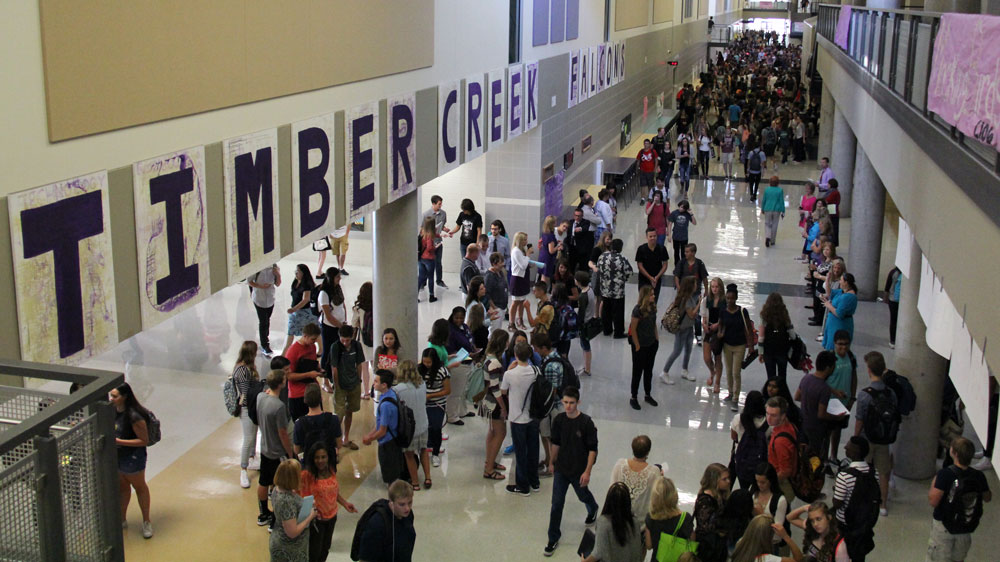Let’s be honest: almost nobody likes coming to school. Waking up early is difficult, especially as the year progresses. To some, coming to school might even be a safe haven, or something that they’ve accepted. Others, it’s a place for academic competition and striving for their future.
But what are the repercussions that the students, AND the school faces when said student just doesn’t “feel” like coming to school?
“Everybody has somebody that they depend on,” Principal Bartlett answers, in regards as to why attendance, in general, is important – “every time I am out of school, I miss an opportunity to be there for somebody. It’s a family thing to me.”
Principal Donnie Bartlett has been known to let his students know how much he loves them. That is why maintaining faculty and student attendance is so hammered down. “It’s also important for make-up time, getting credit for your courses, and the most important thing to me,” Bartlett says, “simply being present in the building makes all the difference.”
Not only does coming to school regularly build an intertwining string of academic relationships, friendships, and memories, but attendance is very important for funding. “Every day that you come into school and you sit in a seat – every day – you make, say, about thirty dollars per day,” Bartlett reminds us, “so if one student can make that amount of money per day, and has perfect attendance, imagine what the entire school can make per year.”
Funding is essential – not only does funding cover necessities for the school, but it builds academic opportunities as well: when students come to school regularly, the school is able to supply its students with field trips, lab equipment, art supplies… you name it.
So, yes: attendance is important. This does not mean that you should come to school when you are feverish, but rather be weary of how many days you miss. “Family trips are understandable, but if you wake up one morning and tell yourself ‘I don’t feel like coming to school,’ it makes all the difference,” Bartlett says. Missing one lesson, or one exchange with a classmate, teacher, or staff member can make all the difference.
